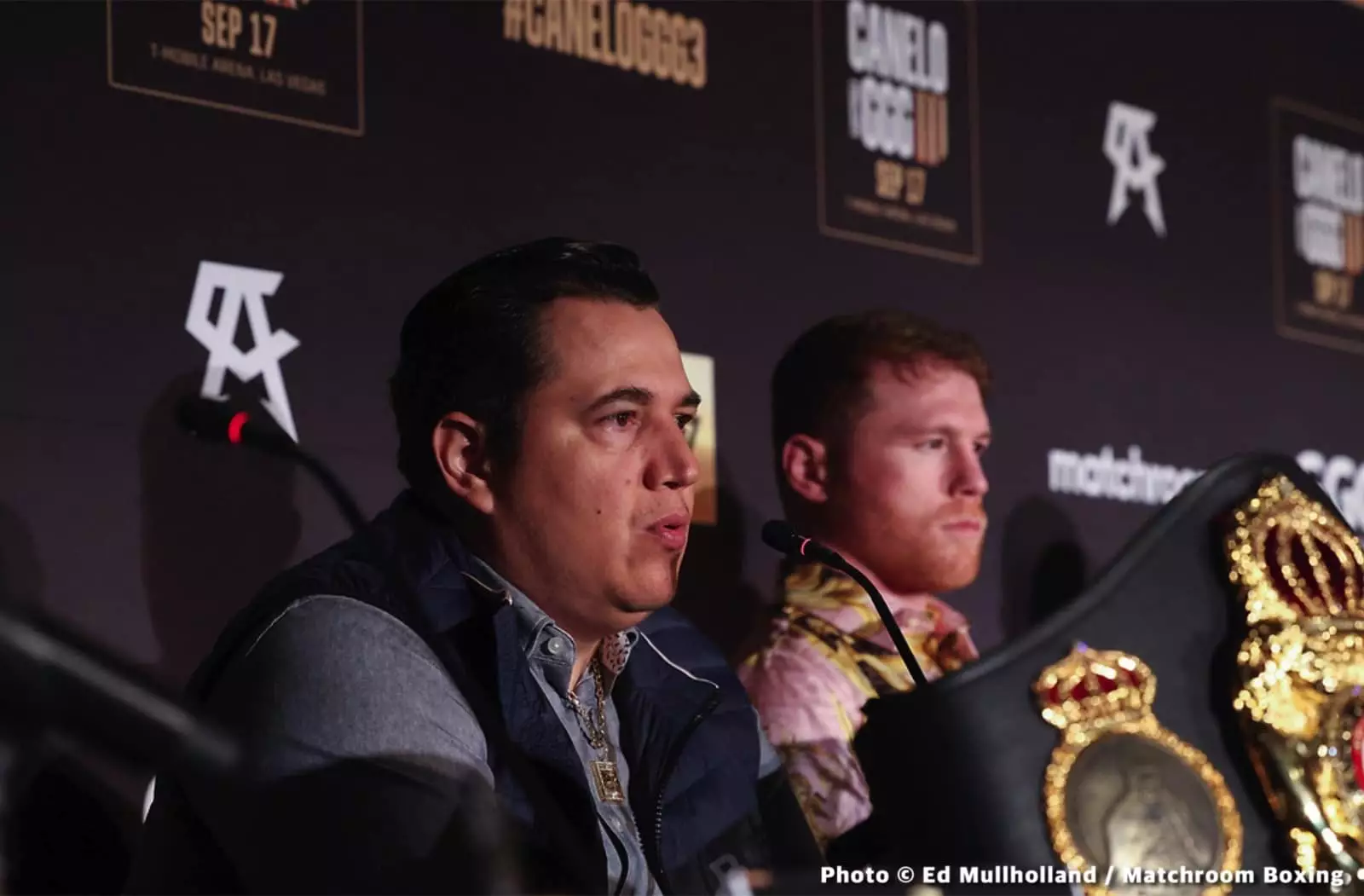The world of professional boxing often stands at the intersection of admiration and suspicion. When fighters fail drug tests, the immediate reaction isn’t just disappointment—it’s often a wave of skepticism that washes over everyone associated with them. Such scrutiny is especially intense when prominent trainers, like Eddy Reynoso, find themselves in the crosshairs. The recent allegations against Reynoso and his fighters, notably Jaime Munguia and Francisco Rodriguez, highlight a troubling pattern: the sport’s struggle to maintain integrity amid growing doping concerns. These incidents underscore how fragile trust is in boxing, and how critical it is for figures of influence to demonstrate unwavering commitment to transparency and fair play.
The Power of Accountability and Public Response
Eddy Reynoso’s public statement was more than a mere defense—it was a declaration of integrity, emphasizing his stance against doping and his dedication to clean boxing. His insistence that he did not participate in Rodriguez’s fight, despite being photographed supporting him, exposes the complicated web of relationships and perceptions that surround trainers and fighters. Reynoso’s candid acknowledgment of the limits of his influence—specifically that he does not handle fighters’ nutrition or supplements—aims to distance himself from any suspicion of misconduct. However, in an era where social media and instant news amplify every detail, such disclaimers often come too late to quell the collective suspicion that lingers.
Misconceptions and the Myth of Innocence
The direct link between Reynoso and the recent doping allegations highlights a deeper issue: the tendency to conflate association with guilt. Just because Reynoso is connected to fighters who tested positive does not mean he is complicit. His openness in clarifying his non-involvement points to a broader debate about accountability—should trainers be held responsible for their fighters’ actions outside the gym? In truth, trainers like Reynoso serve as scapegoats for systemic problems within the sport, such as inadequate doping controls or insufficient oversight from authorities. The fact that Reynoso openly supports drug testing signals his awareness of these issues and a desire to promote integrity, even amid mounting pressure.
The Complex Reality of Fighting Clean
While Reynoso’s stance on clean boxing is commendable, it raises questions about the genuine effectiveness of current anti-doping measures. Can an individual’s declarations truly serve as a shield against doping, or do they merely provide superficial reassurance? Doping in sports like boxing isn’t solely a matter of individual morality but a systemic challenge driven by high stakes, money, and the relentless desire to succeed at any cost. Reynoso’s plea for fair play is aspirational—yet it also exposes the limitations of relying solely on declarations of innocence. True change requires robust, consistent testing protocols and a cultural shift towards valuing integrity over victory.
Beyond Blame: Cultivating a Culture of Transparency
What Reynoso’s situation illuminates is the necessity for the sport itself to foster a culture rooted in transparency and accountability. The trainer’s role should evolve from a mere tactical advisor to an advocate for ethical standards, consistently championing anti-doping measures. This way, accusations against individuals or camps become less frequent, and trust can gradually rebuild. Every stakeholder, from fighters to officials, must recognize that integrity is the backbone of a sport’s legitimacy. Reynoso’s emphatic support for clean boxing is a step forward, but the true victory lies in systemic reforms and proactive measures that prevent doping before suspicions arise.
The Uncertain Path Forward
Even with statements like Reynoso’s, the shadow of doubt will persist unless concrete actions accompany words. Implementing stricter drug testing regimes, independent audits, and fostering a culture that prioritizes athlete health over clandestine performance enhancement are vital. Only by embracing full transparency can boxing hope to shed its reputation as a sport haunted by doping scandals. That requires unwavering leadership from trainers, fighters, and governing bodies alike—each must act with integrity, knowing that their reputation and the sport’s future depend on it.
Reyonsio’s insistence on supporting drug testing and clean boxing may not end all speculation overnight, but it sends an important message: the fight against doping isn’t just fought in laboratories or backstage, but in the hearts and minds of everyone committed to the sport’s true spirit. Without such convictions, boxing risks becoming a hollow spectacle—one that continually sacrifices integrity at the altar of fleeting glory.

